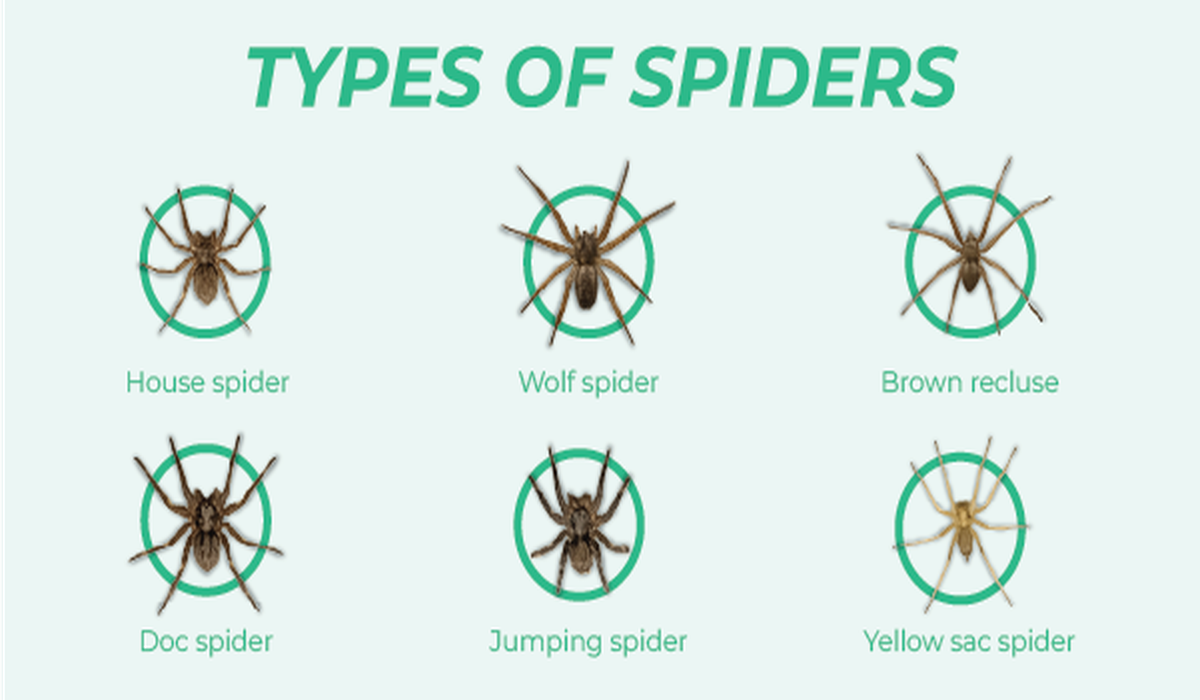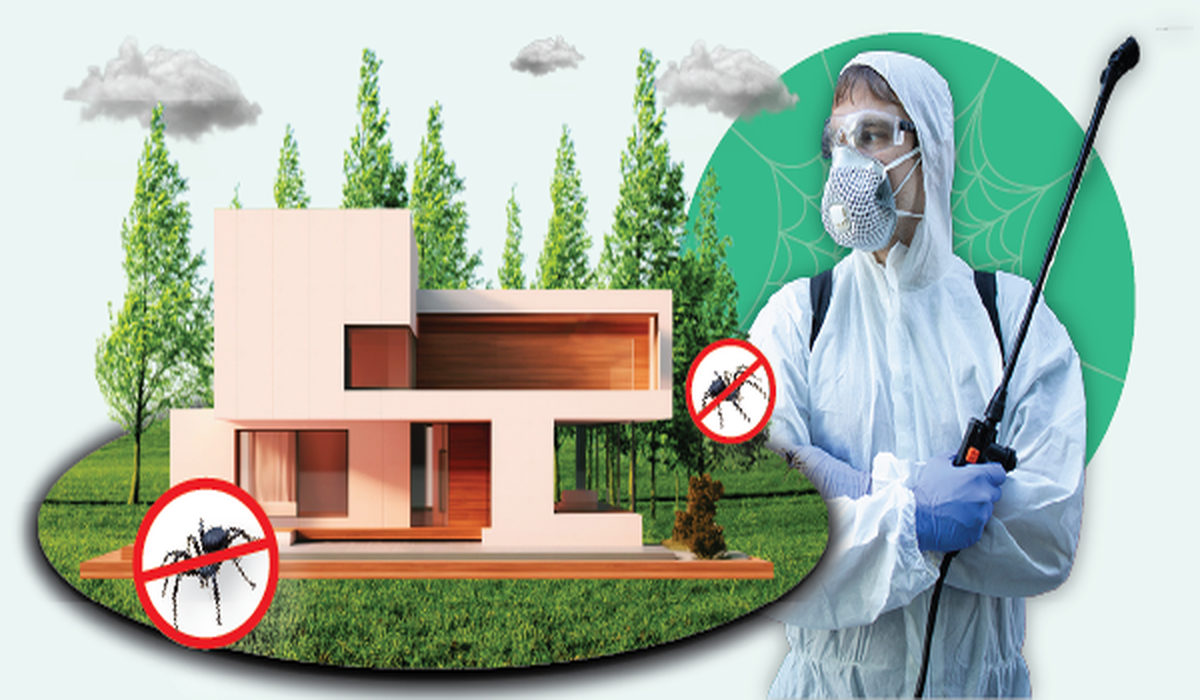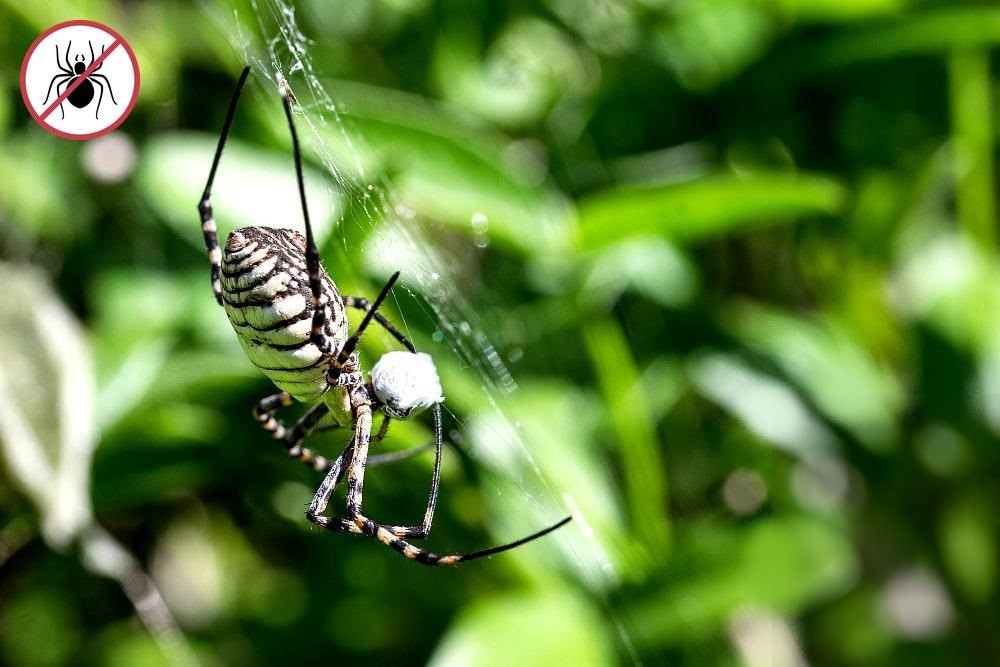How to Get Rid of Spiders: Natural Methods, Prevention & Professional Solutions
Dealing with spiders in your home can be both frustrating and concerning for many homeowners. Whether you’re facing a few house spiders in the basement or dealing with a larger infestation, knowing how to get rid of spiders effectively is essential for maintaining a comfortable living environment. At Safe Home Pest Services, we believe in empowering homeowners with comprehensive knowledge about natural spider repellents and prevention strategies that work alongside professional pest control solutions.
Understanding Common House Spiders
Spiders belong to the Order Araneae, making them ancient animals that have existed for hundreds of millions of years. These fascinating creatures represent the largest group of arachnids, with over 45,000 species worldwide and approximately 3,000 species in North America. Despite their intimidating reputation, most spiders are harmless and actually beneficial in keeping insect populations in check.

Spider Identification: Key Physical Characteristics
All spiders can be distinguished by their 8 hairy legs, two body segments, and lack of wings or antennae. The front body segment, called the cephalothorax, houses the spider’s eyes, fangs, brain, stomach, and poison-making glands. This section is protected by a carapace, which serves as a shield-like covering. The back body segment, known as the abdomen, contains the silk-producing glands called spinnerets.
Common North American Spider Species
House spiders are among the most frequently encountered indoor species. Homeowners often mistake other small arachnids for spiders. If you’re seeing tiny red bugs on your walls or windowsills, check out our guide on tiny red spiders and whether they’re dangerous to properly identify what you’re dealing with. These spiders prefer dark, undisturbed areas and can be found in crawl spaces, attics, ceiling corners, and main living areas. Wolf spiders are larger, hunting spiders that don’t rely on webs to capture their prey. Jumping spiders are small, active predators known for their excellent vision and ability to leap several times their body length.
Signs of Spider Infestation
Identifying a spider infestation early is crucial for effective control. It’s important to correctly identify the pests you’re seeing. Many homeowners confuse tiny red spiders with actual spider infestations, when they’re often dealing with harmless clover mites instead. Signs of a possible infestation include multiple spider webs throughout your home, egg sacs in corners and hidden areas, and frequent sightings of live spiders.
Visual Indicators: Webs, Egg Sacs, and Live Spiders
Spider webs in window corners, along ceiling edges, and in dark areas are the most obvious indicators. Egg sacs appear as small, round, silken pouches that may contain 100 eggs on average. Yellow sac spiders typically produce around 40 eggs per sac, while house spiders can yield 150-400 eggs per sac.
High-Risk Areas: Basements, Attics, and Dark Corners
Spiders frequently hide in dark areas where they remain undisturbed. Basements with moisture problems, attics with poor ventilation, and crawl spaces provide ideal habitat conditions. Some spiders prefer damp basements, while others favor dry, warm areas like attics or ceiling corners.
What Attracts Spiders to Your Home
Understanding what draws spiders to your home is essential for effective prevention. Spiders enter homes for various reasons, primarily in search of food supply and favorable habitat conditions.
Primary Food Sources: Other Insects and Pests
Spiders are predators that feed on insects including ants, flies, moths, cockroaches, and mosquitoes. If your home has an abundance of these household pests, it becomes an attractive hunting ground for spiders.
Environmental Factors: Moisture, Darkness, and Clutter
Moisture and humidity create ideal conditions for many spider species. Damp basements, poor ventilation, and water leaks attract spiders seeking moisture. Dark, undisturbed areas with clutter provide perfect hiding spots.
Natural Spider Repellents That Actually Work
Natural spider repellents offer safe, effective alternatives to chemical sprays without the risk of staining textiles or causing damage to stone surfaces. When homeowners ask how to get rid of spiders naturally, these biodegradable solutions are ideal for families seeking chemical-free pest control options.
Essential Oil Solutions: Peppermint, Tea Tree, and Eucalyptus
Essential oils are among the most effective natural repellents for spiders. Peppermint oil is particularly powerful – spiders hate the strong scent and will avoid areas treated with this oil-based product.
Recipe for Peppermint Spider Spray:
- 10-15 drops of peppermint oil
- 1 cup of water
- Few drops of dish soap
- Spray bottle
Combine ingredients and spray areas prone to spider activity, including windowsills, door frames, and corners. Tea tree oil, eucalyptus oil, lavender oil, and cinnamon oil also work effectively.
Household Remedies: White Vinegar and Soap Sprays
White vinegar contains acetic acid that burns spiders upon contact and acts as a natural deterrent. Mix equal parts white vinegar and water, then spray the mixture in areas where spiders are active.
Diatomaceous Earth: Application and Safety Tips
Diatomaceous earth (DE) is a natural, fossilized algae product that is deadly to spiders but safe for humans and pets when used properly. Spread food-grade diatomaceous earth in thin layers around spider hiding areas, behind appliances, and along walls.
Plant-Based Deterrents: Indoor and Outdoor Options
Certain plants naturally repel spiders through their scents. Mint, spearmint, thyme, and lavender planted around your home’s foundation create a natural barrier. Cedar wood and cedar oil also serve as effective deterrents.
DIY Spider Prevention Strategies
Prevention is the best course of action for long-term spider control. An integrated pest management (IPM) approach combining multiple prevention strategies provides the most effective and lasting results.
Structural Modifications: Sealing Cracks and Entry Points
Seal cracks and gaps in your home’s construction and foundation to eliminate access points. Use caulk to fill small cracks around windows and doors, and install weather stripping to create airtight barriers.
Cleaning Routines: Vacuuming and Web Removal
Regular vacuuming is crucial for spider prevention. Vacuum spider webs, egg sacs, and spiders themselves, then immediately dispose of the contents in a sealed bag in an outdoor trash can away from your home.
Environmental Controls: Reducing Moisture and Clutter
Deal with moisture problems in the basement and use a dehumidifier if necessary. Remove clutter from around the outside walls of the house, as items lying on the ground can trap moisture and attract insects that serve as spider food.
Outdoor Maintenance: Landscaping and Lighting Adjustments
Limit outdoor lighting or connect lamps to motion detectors to reduce insect attraction around your home’s exterior. Maintain your yard by removing debris and trimming vegetation away from the house.

Safe Spider Removal Methods
When you encounter spiders in your home, safe removal is essential to avoid bites and ensure effective control.
Catch and Release Techniques
If you see a spider near a door or window, use a soft brush to chase it outside. For live capture, use a glass and piece of paper to trap the spider, then release it outdoors away from your home.
Vacuum Removal Best Practices
Vacuum cleaners provide effective spider removal when used properly. Vacuum not only the spiders but also their webs and egg sacs. Immediately dispose of vacuum contents in a sealed bag in an outdoor trash can.
Web and Egg Sac Disposal
Web removal should be thorough and regular. Use a broom or long-handled brush to remove webs from high places like ceiling corners and eaves. Remove egg sacs before they hatch to prevent population explosions.
When to Call Professional Pest Control
While many spider problems can be managed with natural methods and prevention, certain situations require professional expertise.
Identifying Serious Infestations
Serious infestations are characterized by numerous webs, multiple daily sightings, and egg sacs throughout the home. Professional assessment becomes necessary when DIY methods fail to reduce spider populations.
Dangerous Spider Species Recognition
Black widow spiders and brown recluse spiders pose genuine health risks and should only be handled by professionals. These species require expert identification and specialized treatment.
Professional Treatment Options
Licensed pest control companies offer integrated pest management approaches that combine natural methods with targeted treatments. Green pest management systems provide lasting results without relying heavily on pesticide products.
Spider Bite Safety and First Aid
Understanding spider bite facts helps distinguish between genuine emergencies and minor reactions.
Common Misconceptions About Spider Bites
Spiders are often blamed for mysterious bites, but most spiders’ fangs are too small or not strong enough to puncture human skin. Spiders typically don’t bite humans unless they feel threatened or provoked.
Actual Bite Symptoms and Treatment
Most spider bites go unnoticed or are mistaken for common pest insect bites. Spider venom usually results in slight swelling, inflammation, or itching sensation in humans.
When to Seek Medical Attention
Seek medical attention if you experience severe pain, significant swelling, systemic symptoms like fever or nausea, or if you suspect the bite came from a dangerous species.
Seasonal Spider Management Tips
Seasonal variations in spider activity require adapted management strategies throughout the year.
Spring and Summer Prevention
Spring and summer mark peak mating seasons for many spider species. Increase prevention efforts during these months by sealing entry points and maintaining clean environments.
Fall Migration Control
Fall migration brings many outdoor spiders seeking winter shelter. Inspect and seal potential entry points before cold weather drives spiders indoors.
Winter Indoor Management
Winter spider management focuses on indoor populations that have established themselves in heated spaces. Maintain low humidity and continue regular cleaning routines.
Conclusion and Action Plan
Learning how to get rid of spiders effectively requires a comprehensive approach combining understanding, prevention, natural repellents, and professional assistance when needed. Most spiders are harmless and beneficial, but when they become a nuisance, the strategies outlined above provide safe, effective solutions.
Summary of Most Effective Methods
Natural repellents like essential oils, vinegar, and diatomaceous earth offer safe alternatives to chemical treatments. Prevention through proper home maintenance, moisture control, and exclusion techniques provides long-term results.
Step-by-Step Implementation Guide
- Identify spider species and assess the scope of your spider problem
- Implement natural repellents using essential oils and household remedies
- Seal entry points and reduce attractants like moisture and clutter
- Establish regular cleaning routines focusing on web removal and vacuuming
- Monitor results and adjust strategies as needed
- Contact professionals for serious infestations or dangerous species
Long-Term Prevention Strategies
Successful spider management requires consistent effort and integrated approaches. Regular home maintenance, seasonal adjustments, and continued vigilance ensure long-term success. Remember that complete elimination may not be necessary, as spiders provide beneficial pest control services.
By implementing these comprehensive strategies, homeowners can maintain comfortable, spider-free environments while respecting the ecological role these ancient creatures play in our natural ecosystems. Whether you’re dealing with occasional house spiders or seeking preventive measures, understanding how to get rid of spiders safely and effectively will help you maintain a comfortable home environment year-round.

Frequently Asked Questions About Spider Control
How much does professional spider removal cost in Toronto?
The cost of professional spider removal varies depending on the severity of the infestation and the size of your property. For detailed pricing information on our spider control services, visit our pricing page. We offer competitive rates for both residential and commercial spider control in the GTA.
Are spider control treatments safe for children and pets?
Yes, absolutely! At SafeHome Pest Services, we prioritize your family’s safety by using eco-friendly, non-toxic pest control solutions that are completely safe for children, pets, and the environment. Our licensed technicians are trained in safe application methods that effectively eliminate spiders while protecting your loved ones.
How quickly can you respond to a spider infestation emergency?
We understand that spider infestations can be distressing, which is why we offer same-day emergency pest control services in Toronto and the GTA. Our professional exterminators can typically reach you within hours of your call. Contact us at 416-548-8060 for immediate assistance.
What’s the difference between house spiders and dangerous spiders?
Most house spiders found in Canadian homes are harmless and actually beneficial for controlling other insects. However, dangerous species like black widows and brown recluses require professional identification and treatment. If you’re unsure about spider identification, our experts can help determine the species and appropriate treatment method.
Do you provide spider control for commercial properties?
Yes! We offer comprehensive commercial pest control services for offices, restaurants, warehouses, hospitals, and other business establishments. Our commercial spider control solutions are designed to maintain a pest-free environment while complying with health and safety regulations.
How long does a professional spider treatment last?
The effectiveness of spider treatments depends on several factors including the species, infestation severity, and environmental conditions. Most professional treatments provide protection for 3-6 months. We also offer monthly pest control plans for ongoing protection and can customize treatment schedules based on your specific needs.
Can spiders return after professional treatment?
While professional treatment significantly reduces spider populations, complete prevention requires ongoing maintenance. Spiders can return if conditions remain favorable (moisture, food sources, entry points). This is why we recommend combining professional treatment with the prevention strategies outlined above, such as sealing entry points and reducing attractants.
What areas in Toronto do you service for spider control?
We provide spider control services throughout Toronto and neighboring areas including Brampton, Mississauga, Woodbridge, Vaughan, North York, Etobicoke, Richmond Hill, Kleinburg, Maple, Concord, Markham, Thornhill, King City, Bolton, and Caledon. Visit our Contact Us page to confirm service availability in your area.
Should I be concerned about other pests attracting spiders?
Absolutely! Spiders are attracted to homes with abundant insect populations. If you’re dealing with spider problems, you may also need to address other pest issues. We provide comprehensive pest control for cockroaches, ants, flies, and other insects that serve as spider food sources. Controlling these pests often reduces spider activity significantly.
What should I do if I find a spider web with eggs?
Spider egg sacs can contain hundreds of eggs and should be removed immediately to prevent population explosions. If you’re uncomfortable handling egg sacs yourself, contact our professional team. We have the proper equipment and expertise to safely remove egg sacs and treat areas to prevent re-infestation.
Do you handle other household pests besides spiders?
Yes! We’re experts in dealing with various household pests including bed bugs, cockroaches, rodents, termites, flies, bees and wasps, and more. We also provide wildlife control services for raccoons, squirrels, and other animals. Our comprehensive approach ensures your home remains pest-free year-round.
How can I schedule a spider inspection?
Scheduling a spider inspection is easy! Call us at 416-548-8060 or fill out the form on our Contact Us page. Our professional team will contact you promptly to arrange an inspection and provide a customized treatment plan based on your specific spider control needs.
One Comment
How to Get Rid of Spiders Naturally in Toronto - Bright Folio
[…] these chemical options can be harmful to humans, pets, and the environment. That’s why natural spider control is gaining […]